How 4,000 My Little Pony toys became fine art
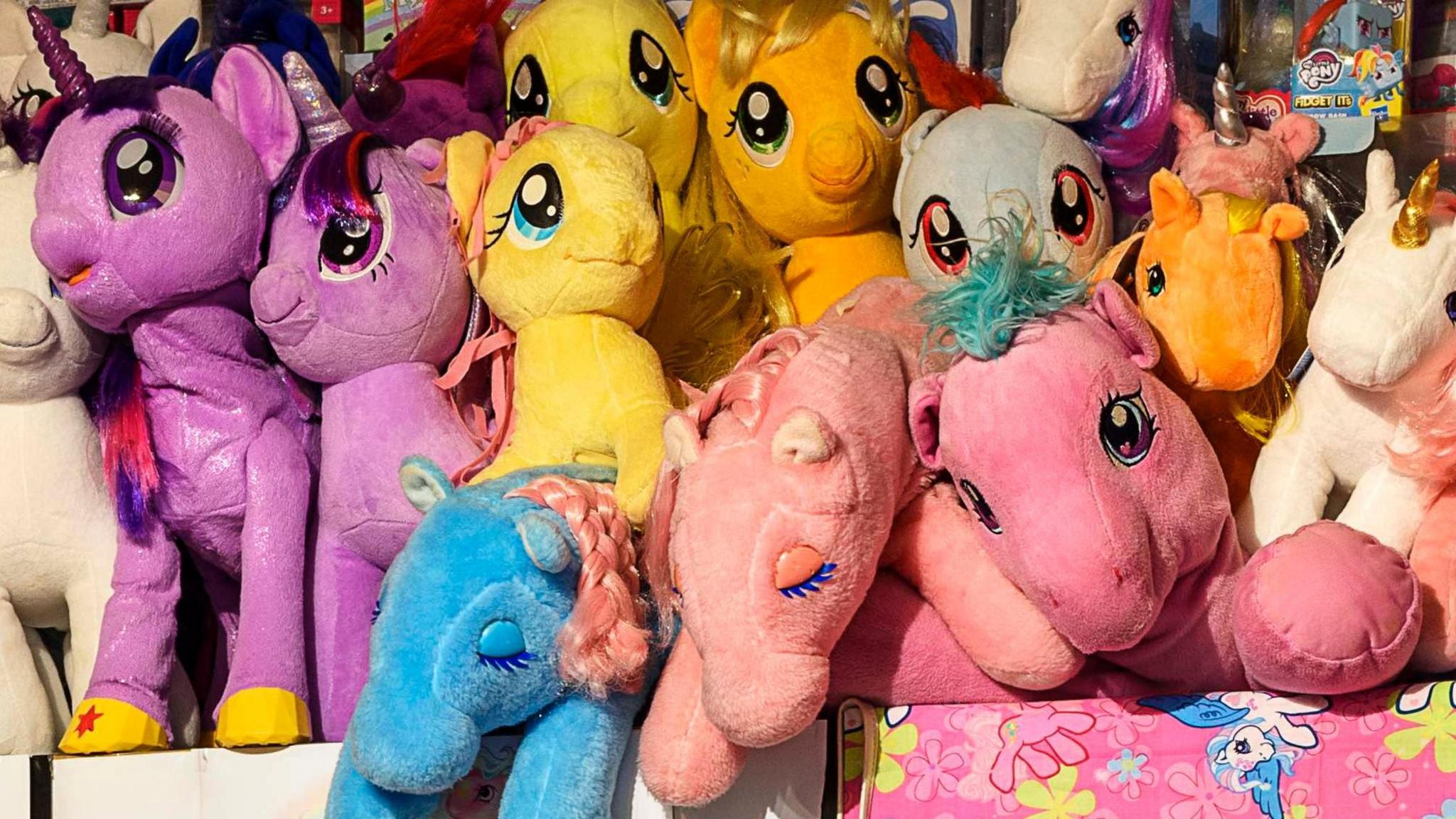
Miranda's Little Ponies - some of them.
- Published
Miranda Worby, from Suffolk, was given a My Little Pony toy at the age of four - 37 years later, she owns more than 4,000.
Miranda and her partner even had to move to a bigger house with a dedicated room to display them.
Her collection is now among the main attractions at Come As You Really Are, an exhibition in Croydon, south London, celebrating hobbies across the UK.
More than 14,000 objects are on display, as part of a series of exhibitions running until 2025 to showcase the passions and creativity in people's homes.
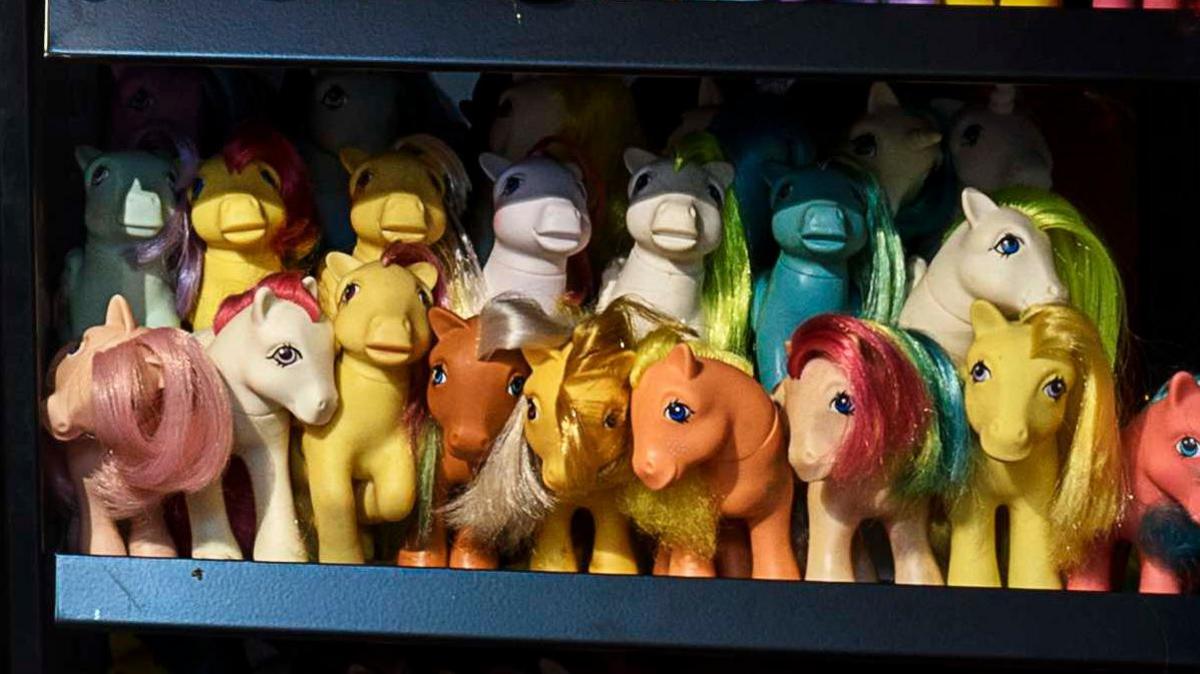
Miranda and her partner had to move home to accommodate her massive collection
Also featured are Cosplay costumes, micro-ceramics and a collection of 2,000 carrier bags.
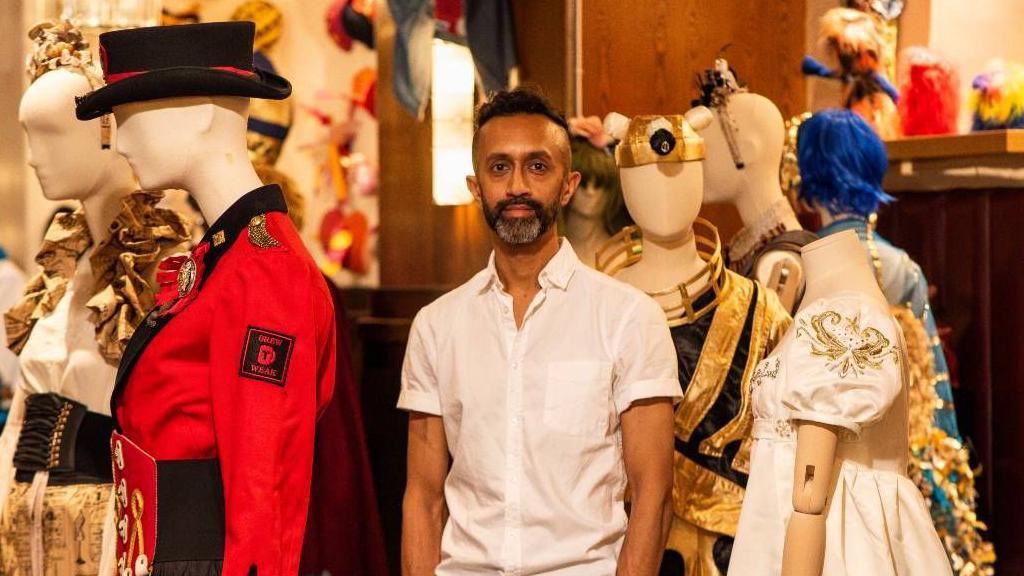
Artist Hetain Patel made three Spider-Man outfits and a Transformers-style robot car
Hundreds of people of all ages and backgrounds responded to a national callout from artist Hetain Patel, commissioned by arts organisation Artangel.
"I was fascinated by hobbies and wanted to celebrate them," he tells BBC News.
It all started when Patel created a Spider-Man costume, in his spare time, and met other costume creators on YouTube.
These intense and friendly networks of creators inspired him to seek out more homegrown creativity.
"It's so celebratory to see what people are doing and the different ways that they're doing it," Patel says.
"And I just love that you can't stop it.
"It says something really positive."
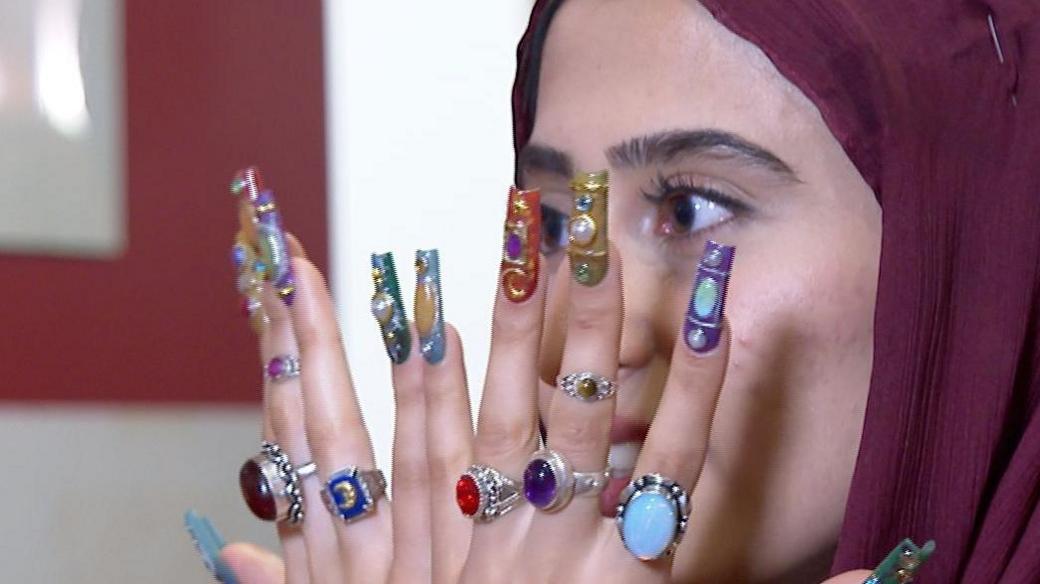
Zahra Nadeem, from Rochdale, creates "crazy artwork" on her nails
Zahra Nadeem, from Rochdale, can spend months working, off and on, on a single fingernail but never imagined her hobby - designs including a car, a 3D spider and, you guessed it, Spider-Man - would be on display in a gallery.
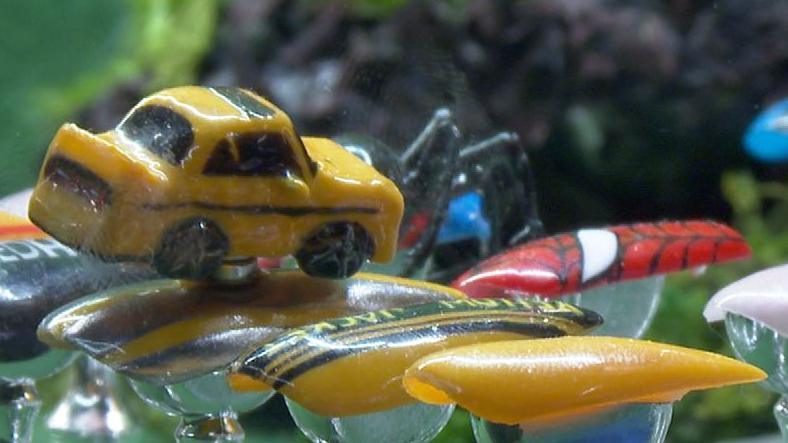
Best worn when not doing heavy manual work
"I've joked about it a few times," she says.
"Whenever I do crazy artwork, I show family or friends.
"They would joke, 'That should be in like an exhibition.'
"I would laugh and be like, 'No-one's going to look at nails in an exhibition.'
"Amazing, it's just amazing."
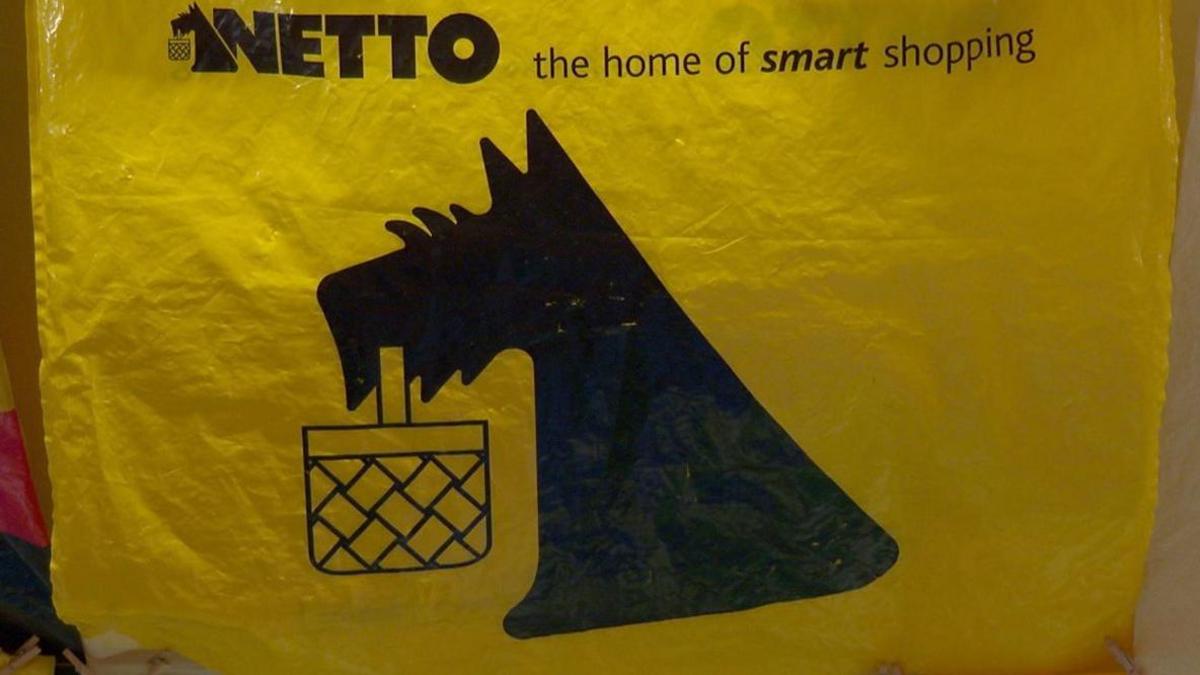
One of Ken's most prized plastic bags
Ken Ford has been collecting objects since the 1950s.
And his selection of vintage carrier bags is a memory palace of lost shops.
Shuttered discount supermarket chain Netto, former Croydon independent department store Allders, clothing multinational C&A, which pulled out of the UK in 2001, and electronics giant Rumbelows, once bigger than Currys and Dixons on the High Street, are all represented in Ken's colour-coded display of plastic retail history.
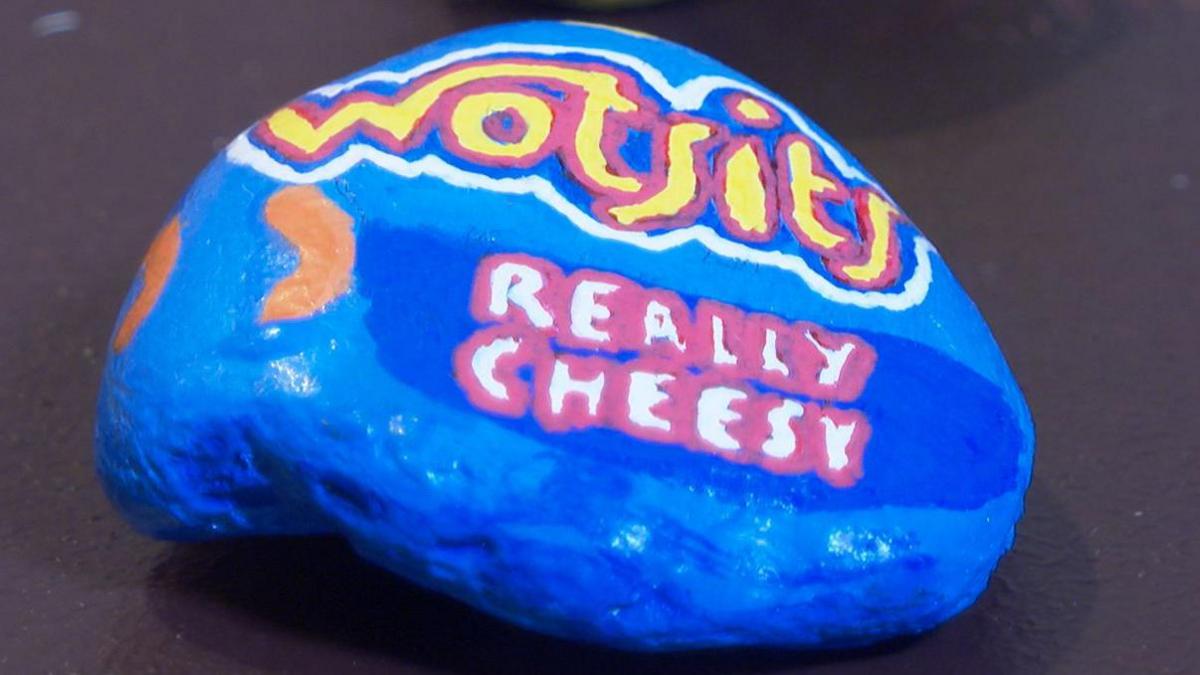
A pebble made to look like a packet of Wotsits
Jenny Kieran's passion is recreating classic British food brands such as Toffee Crisp, Branston Pickle and Wotsits in the form of multi-coloured painted pebbles.
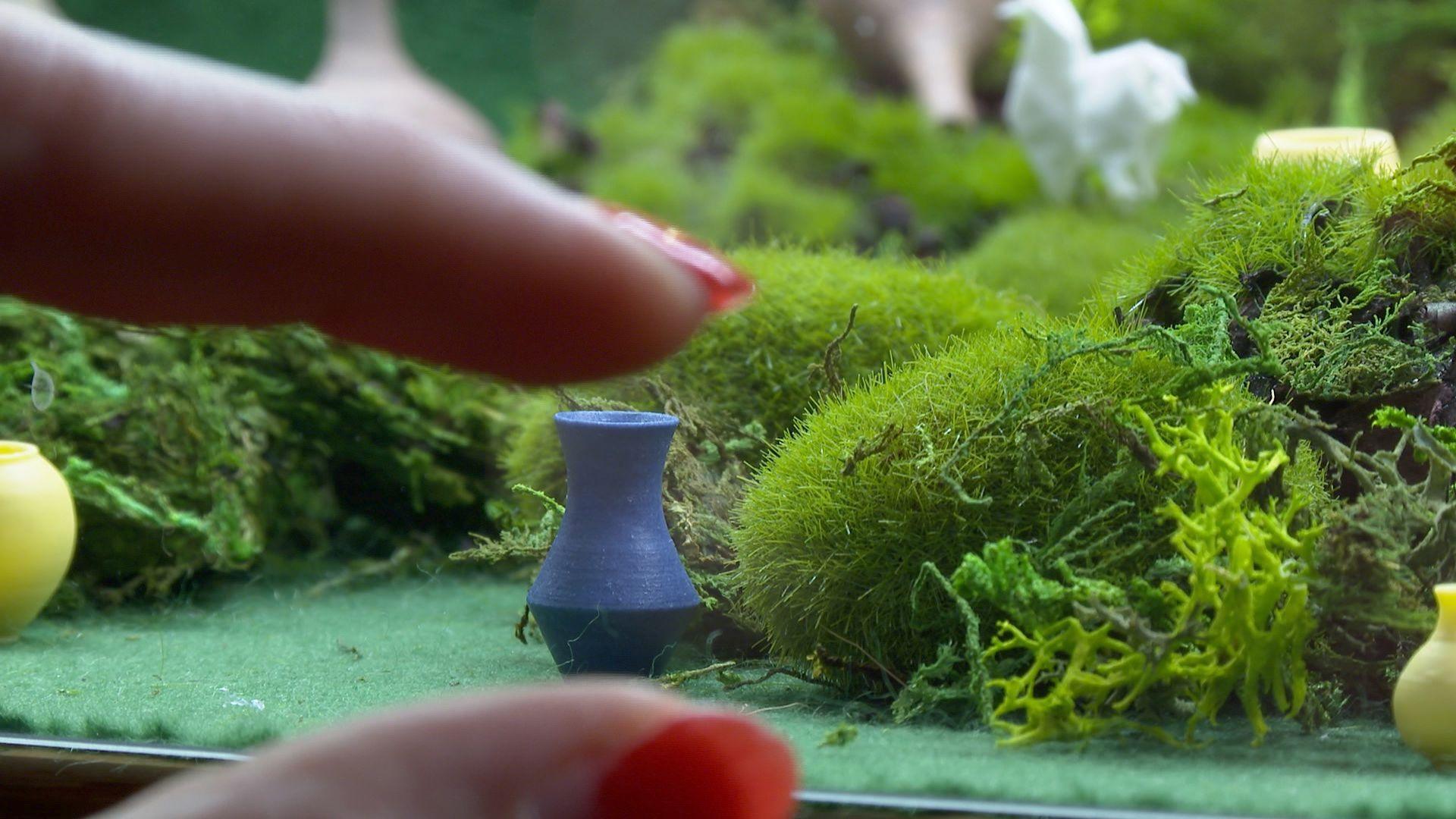
A tiny pot made with a miniature potter's wheel
Also on show are the micro-pots of Bx Woo, who travels the world with her miniature potter's wheel extolling the joys of mini-ceramics.
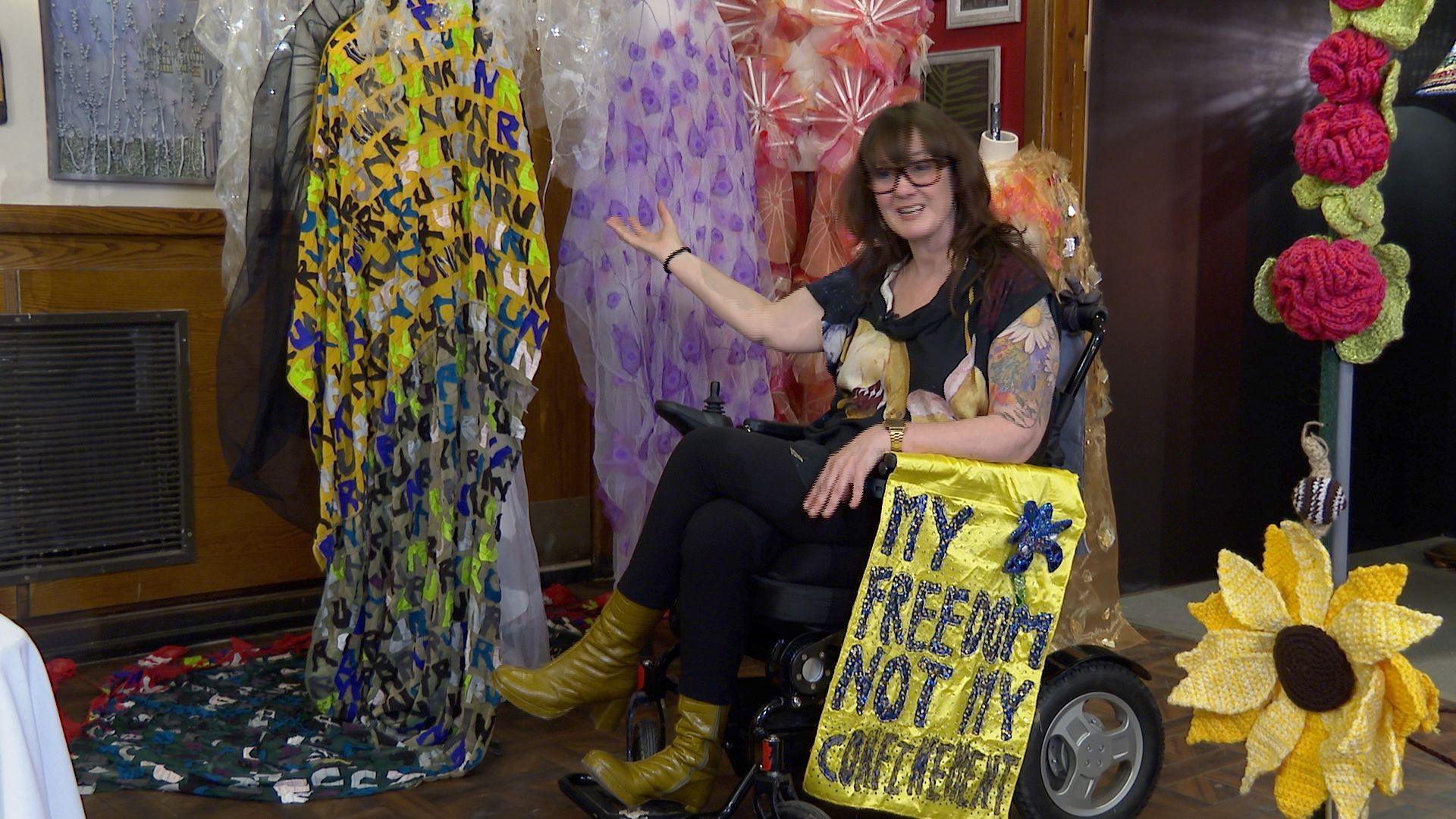
Eleanor Roberts and her capes
But for medical writer and neuroscientist Eleanor Roberts, the chance to display her capes is about more than just showing off a hobby.
Needlework has become therapy on days when her disability prevents her working.
"I can do it, without thinking," Eleanor tells BBC News.
"I'm just using my hands, picking it up, putting it down, doing nothing, resting, keeping me going.
"It's keeping me happy.
"It speaks of my experience with the grief of disability.
"To have people see it and they can wear it, it's just wonderful."